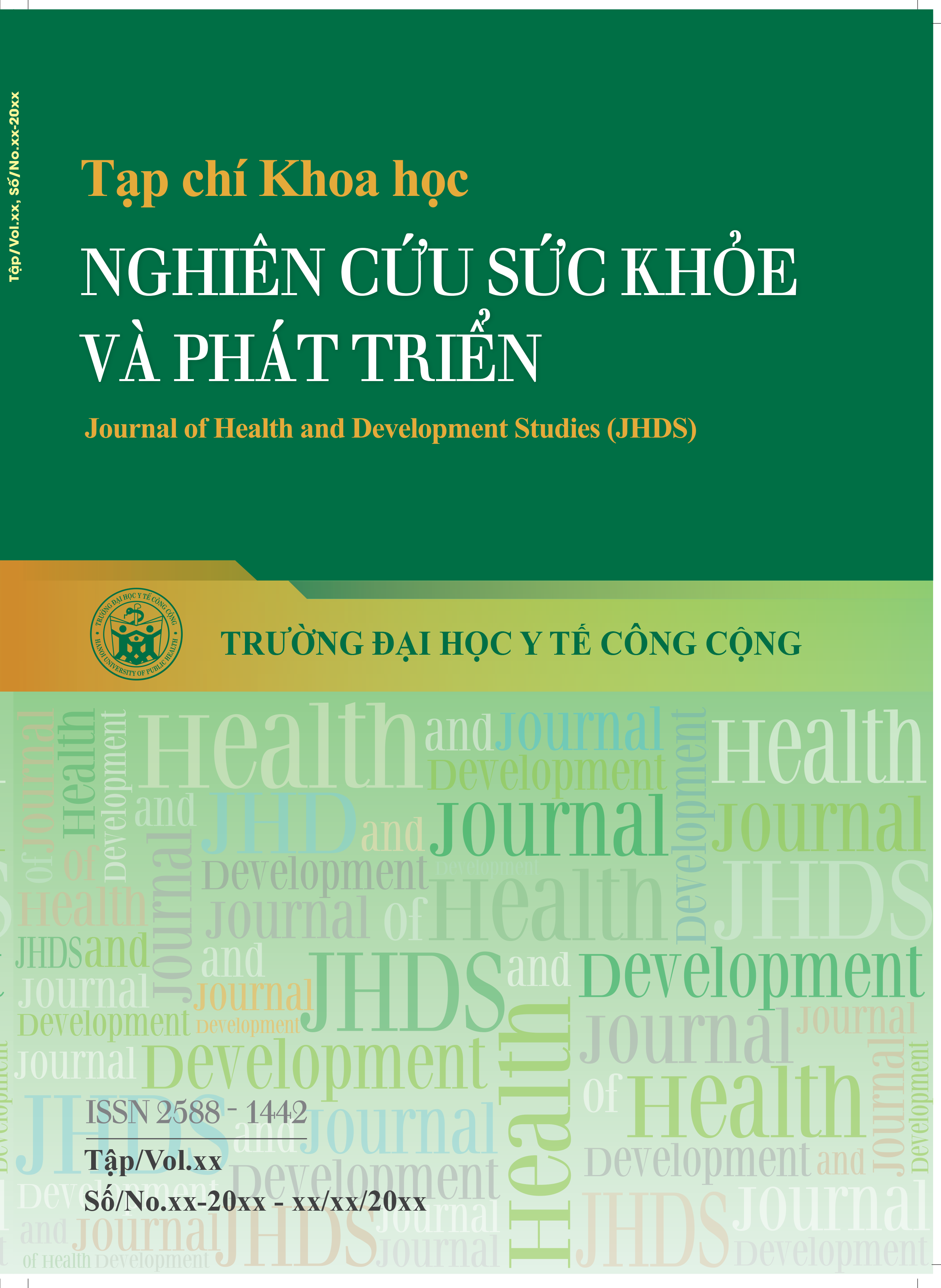Tạp chí
Khoa học Nghiên cứu Sức khỏe và Phát triển
(Journal of Health and Development Studies – JHDS)
Trường Đại học Y tế công cộng
ISSN (Print): 2588-1442
ISSN (Online): XXXX-XXXX
https://jhds.edu.vn
Cost-effectiveness of interventions for people with dementia without caregiver: A Systematic Review
- Mã bài báo : SKPT_20_088
- Ngày xuất bản : 26/03/2021
- Số trang : 41-51
- Tác giả : Vu Thi Hue
- Lượt xem : ( 1038 )
Danh sách tác giả (*)
- Vu Thi Hue 1 - Hanoi Medical University
- Bui Bich Huong 1 - Hanoi Medical University
- Pham Hai Thanh 2 - Hanoi Textile and Garment Hospital
- Nguyen Huu Thang 3 - Department of Health Organization and Management, The Institute of Preventive Medicine and Public Health, Hanoi Medical University
Objective: This study was conducted to answer the three questions: 1- What intervention with no caregiver to increase cost-effectiveness in patients with dementia have been implemented? 2- How has disease progression changed in these interventions? 3- How has cost effectiveness changed in these interventions?
Methods: The databases were searched from PubMed, Cochrane and Science Direct. Studies on cost-effectiveness of interventions for people with dementia without caregiver published from 2010 to 2020 have been filtered. Systematic review was carried out according to the Cochrane Collaboration methodology. Search for documents based on PICOTS standards: Population - Patients with dementia, regardless of disease severity; Intervention - Intervention with no-caregiver for dementia patients; Comparison - The intervention group and the control group; Outcome measure - Disease progression and Cost effectiveness; Time - Studies published from January to January 2020. Study design: A randomized controlled trial. Study subjects are not age restricted.
Results: 2163 documents were found, of which, there are 15 documents satisfy the criteria. (1) Modes of intervention: There are 3 studies on exercise interventions, 2 studies on drug treatment, the rest are different treatment programs. In which, the START program has done the most studies with 3 studies. (2) Disease progression: Out of the 15 studies, 14 found the difference between the intervention group and the control group. The intervention group mostly had higher QALYs and had better disease progression. (3) Cost-effectiveness: There are 11 out of 15 studies showing the cost-effectiveness of the intervention group compared with the usual care group. 4 remaining studies did not show a cost-effectiveness and there is no evidence of cost-effectiveness unless the service user is willing to pay certain amount for that intervention.
Conclusion: This study shows evidence of no-caregiver interventions that improve dementia and increase the cost-effectiveness of treatment.
- DOI : https://doi.org/10.38148/JHDS.0502SKPT20-088
- Chủ đề :
- Loại bài báo : Nghiên cứu gốc
- Chuyên nghành : Chuyên Ngành Y
 Thông tin liên hệ : Vu Thi Hue
Thông tin liên hệ : Vu Thi Hue Email : vuhueytcchmu@gmail.com
Email : vuhueytcchmu@gmail.com Địa chỉ : Hanoi Medical University
Địa chỉ : Hanoi Medical University
- Từ khóa :
- dementia
- cost-effectiveness
- no-caregiver
- review.
Bài báo liên quan
- The prevalence of stress-related covid19 quarantine among secondary-and-highschool students in northern Vietnam
- The relationship between T-CD4 recovery and HIV disclosure status among HIV-infected patients on first-line antiretroviral therapy at the Hospital for Tropical Diseases in Ho Chi Minh City
- The cost of HIV testing at five district health facilities intervented poct model to confirmation HIV detected
- Commentary: A Significant Transition of Mode of Teaching and Studying to meet the Covid-19 challenges in an university in Vietnam
- Information searching behaviors among Vietnamese students during first wave of the COVID-19 pandemic
- Health care seeking behaviuor among the elderly in Hue City
- Key breeding sites of Aedes mosquitoes in Huaylau village, Pakse city, Champasack province, Lao People Democratic Republic 2019
- Cost-effectiveness of interventions for people with dementia without caregiver: A Systematic Review
- Sleep quality among youngster in Danang city, Vietnam: A cross-sectional study
- Job demand and control among clinical nurses in a provincial hospital and related factors: Results from a cross-sectional study in 2020.
- The association between smoking status and tobacco outlets density and proximity: A cross-sectional study with geographical data from CHILILAB, 2016
Bài viết mới nhất
- Một số trang web hữu ích đối với các nhà khoa học
- Dành cho chuyên gia
- Tạp chí Khoa học Nghiên cứu sức khỏe và Phát triển duyệt tối đa 1,0 điểm ngành Y trong Danh mục Tạp chí khoa học được tính điểm của Hội đồng giáo sư Nhà nước
- CHÚC MỪNG NGÀY BÁO CHÍ CÁCH MẠNG VIỆT NAM (21/6)
- GS.TS Hoàng Văn Minh - Hiệu trưởng Nhà trường 'lọt top' nhà khoa học có chỉ số trích dẫn hàng đầu thế giới

 File toàn văn
File toàn văn